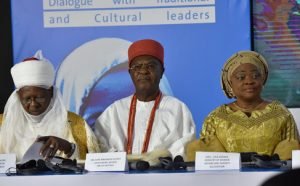The African Culture And Destiny In Modern Reality.

Africa is rich in culture. Now, this is a cliché, but the truth is not lost to the claim. This to me is an advantage in a world growing very fast that preserving the elements of the past is becoming more and more difficult. Beyond her culture, however, Africa has had quite a history, some interesting, but the most part characterized by various levels of dehumanization. Nonetheless, beyond her dark history, Africa is rising. All over the continent, there is an increased excitement at the economic and democratic growths. At last, military coups are becoming part of a past history and many social entrepreneurial ventures are sprouting up. It is not yet uhuru though, but it is heartwarming that Africans are beginning to take their destinies into their hands and embracing the modern reality. Among other things, many businesses are beginning to see the need for their contributions to this African economic future. This is evidenced by high contributions of wealthy Africans, in form of foundations and philanthropy, in building the next generation of Africa. The Mo Ibrahims, Tony Elumelus and Innosons of Africa are increasing in number, with return of community service.
Students are not left out. My experiences have drawn me to young people who are perhaps more hungry than their forebears to contribute to this new Africa. Across campuses, students are building platforms for collaborative and interactive learning in order to complement their curricular content: writing and debate clubs, participation in international student professional bodies. These show that Africans are beginning to appreciate that the efforts to reinvent the continent would be led by themselves. Africa is on its path towards her rightful and dignified position in geopolitics.
Of course, there are many challenges, which means that the approach to place the continent in the path of accelerated growth must be systematic. We have reached the period in history we look back and take stock, and then define the way forward. There is already a debate across different social networks and education institutions on the acceptable definition of African identity: to what extent should Africa look behind to draw inspirations from her ancestors or should she wholly embrace globalization led by the West with the East trying to catch up. Resolving that question will be the first step in situating the African nations in the comity of global players.
In this dilemma, we run to historians, philosophers and diplomats for answers. There is no doubt we would have to contend with many ideologues. For instance, it’s not surprising that many Pan-Africanists are overwhelmed by rapid globalization sweeping across Africa. But these are not the ones to worry about since their vision of the continent lies within the global stage. More vexatious should be the culturists who are not willing to compromise on their traditions. This group, usually mistakes culture with traditions. They forget that while traditions are preserved elements of culture, culture is living and ever-changing. Even those cultures they think imperialist are also in constant flux. The European societies for instance have undergone many evolution. Again, when some talk of culture, they often think of only those displays such as arts, dancing, attires and rites and overlook other attributes that characterize their interactions with others- tolerance, open-mindedness and communalism. As the economic and political trajectories evolve, Africa, as a whole, is expected to build upon cultures of quality, efficiency, and trust which would drive her diplomatic dealings. These qualities should also form the basis of educational curricular development. They can always work hand in hand with masks and traditional attires.
Also, one thing is clear; humans have learnt from history that fascism helps no one more than isolating the particular people from common human history. No nation has it all, whether human or material resources. Little wonder that even notable education and economic institutions are encouraging diversity in their choice of students and employees. Every culture and gender has something to contribute. Collaborations and partnerships (including with people and organizations on the other sides of the globe) have become a new way of business. Even defining a country from a purist prism of color and esoteric culture is increasingly becoming difficult, courtesy of long years of migrations and intermarriages. Therefore, while the enthusiasm at growths and increasing prosperity should be fully savored, it would be pertinent to carry everybody along. Africa cannot at this point risk rigidity in ideologies. She will gain more from being open to even unpopular opinions.
Africa has the right to guard her rich cultures and traditions. Nevertheless, culture should never be a hindrance to development. In the 21st century when all the nations of the world are fatedly connected, only cultures which can uphold the economic, spiritual and political growth of the people should be acceptable. Emphasis should also be paid to those elements which are not material. All in all, humanity and tolerance should guide the new African reality.
Onunkwo J Chinedu
Read more at https://opinionsfromafrica.org
Congratulations @ofa.org! You have completed the following achievement on the Steem blockchain and have been rewarded with new badge(s) :
You can view your badges on your Steem Board and compare to others on the Steem Ranking
If you no longer want to receive notifications, reply to this comment with the word
STOPVote for @Steemitboard as a witness to get one more award and increased upvotes!